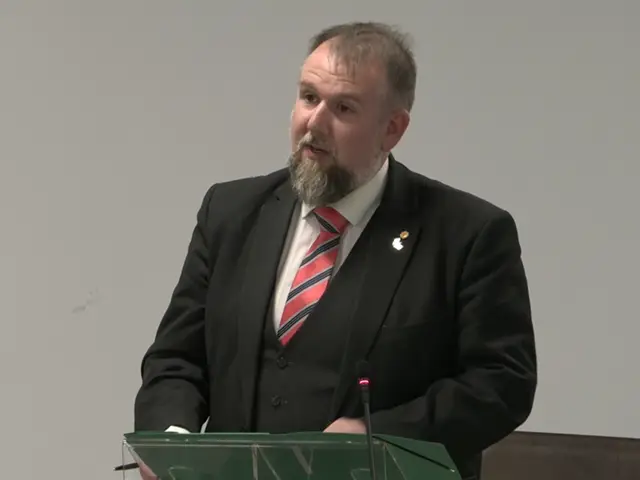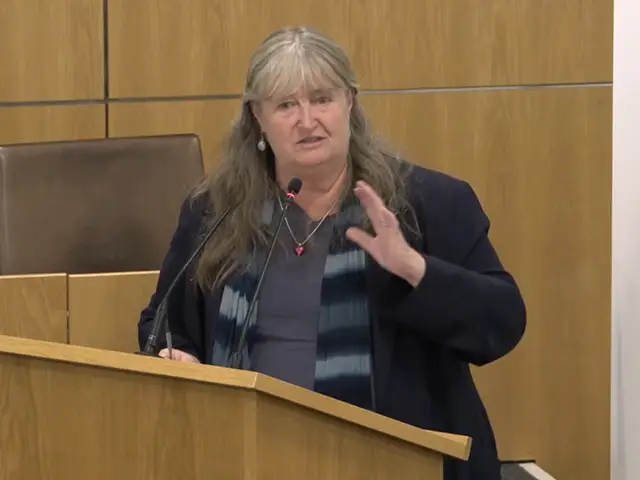Support quality, independent, local journalism…that matters
From just £1 a month you can help fund our work – and use our website without adverts. Become a member today

Transport for Wales spends more than £8m a year on an excess wage bill for dozens of “spare” train drivers and conductors, the Senedd has heard.
Rhys ab Owen, who sits as an independent Senedd Member, expressed concerns about value for money after being contacted by a Transport for Wales (TfW) train driver.
He told the Senedd: “My office undertook some freedom of information requests with Transport for Wales in relation to spare drivers and driving patterns.
“For the time period requested, TfW, by their own figures, had 89 drivers and 70 conductors more than is needed to run the service, and in excess of the established posts. This equates to an excess wage bill per annum of over £8m.”
Mr ab Owen recognised the need for spare drivers to minimise cancellations or delays, saying: “They are utilised to ensure services run and to minimise cancellations and delays. A spare driver works a shift but is not allocated to a route that day.
‘Eradicated’
“In fact, they just sit in the office and they wait for a call. More often than not, that call does not come. They’re on standby in a depot in case a scheduled driver cannot drive that route.”
The former barrister told the debating chamber, known as the Siambr, that TfW has an average of 11 spare drivers and six spare conductors each day.
But he warned: “I’m told that quite often there are three times this number sitting in the depot. This is a considerably higher number than when Arriva ran the service.
“It’s essential that the TfW train service is seen as a service that provides value for money in all areas, not just with regards to fares and tickets, but also in that excess and perceived waste are minimised – in fact, are eradicated.”
Plaid Cymru’s Llŷr Gruffydd contrasted the claim of surplus drivers with his own experiences of cancellations due to “no driver” being available.

‘Half a billion’
Leading a debate on October 15, scrutinising TfW’s performance in 2024/25, he pointed to progress on new trains, the south Wales metro and improving diversity.
But Mr Gruffydd, who chairs the Senedd’s infrastructure committee, was concerned about transparency and oversight of the TfW budget “falling short”.
He told Senedd Members: “We have always maintained that an arm’s-length body handling around half a billion of public money must operate transparently and must be subject to oversight that is clear and effective.”
He called for a single comprehensive budget to be published alongside the Welsh Government’s, which would place TfW on the same footing as other public bodies.
Sam Rowlands, for the Conservatives, warned poor financial transparency and unreliable services contribute to an “erosion of trust” in TfW and the Welsh Government.

‘Significant miss’
South Wales East MS Peredur Owen Griffiths highlighted that Wales’ bus passenger recovery is the slowest anywhere in Britain, with usage stubbornly remaining at only 78% of pre-pandemic levels.
Mr Owen Griffiths, Plaid Cymru’s shadow transport secretary, also warned TfW failed to meet its target to have 95% of journeys on new trains by 2025.
“Today that figure stands at around 77% – a clear shortfall, and one that directly affects passenger confidence,” he said. “This is a significant miss against a flagship commitment.”
He told the Senedd: “We must confront the growing gap between commitments made and results delivered. Words alone don’t get people to work on time.
“What passengers, communities and businesses across Wales deserve are measurable improvements visible in their daily lives.”

‘We held our nerve’
Responding for the Welsh Government, Julie James told Senedd Members that punctuality, reliability and customer satisfaction are all rising. “That’s not just progress, that’s proof that public ownership, investment, and ambition work,” she said.
She accepted 2024/25 was not perfect but she pointed to statistics showing TfW carried 31 million rail passengers – a 19% increase – and train fare revenue rising by £25m to £175m.

Ms James said: “Between April and June this year, Transport for Wales recorded the biggest improvement in punctuality of any UK operator, with 84% of services on time.
“Passenger traffic is up, customer satisfaction is up, and why? Because of our continued and committed investment.
“We held our nerve when all around us were telling us that we were putting too much money into this, and now we reap the rewards. We promised to turn a Victorian railway built for coal into a modern metro and we’ve done it.”
Report by the ICNN Senedd Reporter scheme
Support quality, independent, local journalism…that matters
From just £1 a month you can help fund our work – and use our website without adverts.
Become a member today
